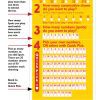Are you ready to learn how to play poker? If you’re a beginner, you’ve come to the right place! Poker is a classic card game that is played and enjoyed by people of all ages and skill levels. Whether you’re looking to play for fun with friends or compete in professional tournaments, this guide will teach you the basics of poker and get you started on your poker journey. Let’s dive in and discover how to play poker like a pro!
In poker, the goal is simple: to win chips from other players by having the best hand or convincing them to fold. The game is played with a standard deck of 52 cards and involves a combination of skill, strategy, and a little bit of luck. As a beginner, you may feel overwhelmed with the different hand rankings, terminology, and rules, but don’t worry! We’ll break it down step by step and make it easy for you to understand.
So, if you’re ready to learn how to play poker, grab a deck of cards, gather your friends, and get ready for an exciting journey into the world of poker. With a bit of practice and a solid understanding of the rules, you’ll soon be bluffing, betting, and winning like a pro. Let’s get started and see how to play poker for beginners!
- Understand the hand rankings and game rules.
- Gather a group of friends or join an online poker site.
- Determine the betting structure and set the stakes.
- Deal the cards and place bets accordingly.
- Master the basic poker strategies and tactics.
- Continue playing and gaining experience to improve your skills.
Whether you’re playing with friends or online, these steps will help you get started on your poker journey. Good luck and have fun!

How to Play Poker for Beginners?: A Step-by-Step Guide
Poker is a popular card game that has captured the hearts of many players around the world. Whether you’re a complete beginner or have some experience with the game, learning how to play poker can be a thrilling and rewarding experience. In this article, we will provide you with a comprehensive guide on how to play poker for beginners, covering everything from the basic rules to strategies that can help you improve your game. So, let’s dive in and discover the exciting world of poker!
The Basics: Understanding the Poker Rules
Before you start playing poker, it’s important to familiarize yourself with the basic rules of the game. Poker is typically played with a standard deck of 52 cards and can have anywhere from two to ten players. The objective of the game is to win chips by forming the best hand or by convincing your opponents to fold.
The game begins with each player being dealt two private cards, also known as “hole cards.” These cards are only visible to the player who receives them. The dealer then places five community cards face-up on the table, which every player can use to make their best hand. The community cards are dealt in three stages: the flop (three cards), the turn (one card), and the river (one card).
During each betting round, players have the option to check, bet, fold, call, or raise. The goal is to have the highest-ranking hand at the end of the final betting round or to make your opponents believe that you do.
Understanding Hand Rankings and Poker Hands
To play poker successfully, you need to understand the different hand rankings and know which hands are stronger than others. The highest-ranking hand in poker is the Royal Flush, which consists of the Ace, King, Queen, Jack, and Ten cards, all of the same suit. Following the Royal Flush is the Straight Flush, which is any five consecutive cards of the same suit.
Other strong poker hands include Four of a Kind, Full House, Flush, Straight, Three of a Kind, Two Pair, One Pair, and High Card. It’s crucial to memorize these hand rankings to assess the strength of your own hand and those of your opponents.
Mastering the different combinations and understanding the odds of making each hand will greatly enhance your poker skills. Remember, poker is not just about the cards you are dealt but also about making strategic decisions based on the information available to you.
Playing Strategies for Beginners
As a beginner, it can be intimidating to sit at a poker table and face more experienced players. However, with practice and the right strategies, you can improve your chances of winning and even outsmart your opponents. Here are a few tips to keep in mind when playing poker as a beginner:
1. Start with low-stake games: It’s advisable to start playing at low-stake tables or online poker rooms to gain experience without risking large sums of money. This will allow you to learn the nuances of the game and practice your strategies.
2. Pay attention to position: Your position at the poker table is crucial as it determines the order in which you make your decisions. Being in a late position can give you a significant advantage, as you have more information about the actions of other players.
3. Practice bankroll management: Managing your bankroll is essential to ensure that you have enough funds to withstand the ups and downs of the game. Set limits on how much you are willing to lose and avoid chasing losses by betting more than you can afford.
4. Learn to read your opponents: Observing and analyzing your opponents’ behavior can provide valuable insights into their hand strength and intentions. Look for patterns, betting tells, and body language cues that may reveal their strategies.
5. Be patient and disciplined: Poker is a game of skill and patience. Avoid playing every hand and focus on playing strong hands that have the potential to win. Patience and discipline are key to long-term success in poker.
Remember, becoming a skilled poker player takes time and practice. Don’t get discouraged by initial losses and keep learning from your experiences. With dedication and a solid understanding of the game, you can improve your skills and enjoy the thrill of poker.
Advanced Strategies: Taking Your Poker Game to the Next Level
Once you have grasped the basics of poker and have gained some experience at the tables, you may want to delve into more advanced strategies to further improve your game. Here are three key areas you can focus on to take your poker skills to the next level:
Bluffing and Deception
Bluffing is a vital element of poker strategy that involves making your opponents believe you have a stronger hand than you actually do. It can be a powerful tool when used strategically, but it also carries risks. Learning how to bluff effectively and read your opponents’ bluffs is an essential skill for any poker player.
To bluff successfully, you must consider the context, your table image, and the behavior of your opponents. Bluffing should be used sparingly and with caution, as experienced players can quickly pick up on your tendencies and exploit them.
Positional Play
Positional play refers to the strategy of playing different hands differently based on your position at the table. As mentioned earlier, being in a late position can provide a significant advantage, as you have more information about the actions of other players before making your decision.
In late position, you have the opportunity to control the size of the pot by making strategic bets or raises. You can also play more hands from this position, as you have more information and can adjust your strategy accordingly. Conversely, in early position, you should be more selective with the hands you play, as you have less information about the actions of the other players.
Understanding and utilizing positional play can give you a considerable edge over your opponents and greatly improve your overall results.
Odds Calculation and Hand Reading
To make informed decisions in poker, it’s crucial to understand the concept of pot odds and how to calculate them. Pot odds refer to the ratio of the current size of the pot to the cost of a contemplated call. By comparing the pot odds to the odds of completing your hand, you can determine whether it’s profitable to continue in the hand.
Hand reading involves analyzing your opponents’ actions throughout a hand and making educated guesses about the range of hands they might be holding. By observing their betting patterns and considering the community cards on the board, you can narrow down the possible combinations of cards they could have. This information allows you to make more accurate decisions and capitalize on your opponents’ weaknesses.
Mastering odds calculation and hand reading will significantly enhance your ability to make profitable plays and maximize your winning potential.
In conclusion, learning how to play poker for beginners is an exciting journey that requires dedication, practice, and continuous learning. By familiarizing yourself with the rules, understanding hand rankings, and implementing sound strategies, you can improve your skills and enjoy the game to its fullest. Whether you play casually with friends or aspire to compete in professional tournaments, poker offers endless opportunities for growth and excitement. So, gather your chips, sharpen your skills, and may the cards be in your favor!
Key Takeaways – How to Play Poker for Beginners?
- Understand the basic poker hands such as flush, straight, and pair.
- Learn the values assigned to each card and how they contribute to a winning hand.
- Know the different poker variants like Texas Hold’em and Omaha.
- Practice your poker skills by playing with friends or online with virtual currency.
- Be aware of the importance of bluffing and reading your opponents’ body language.
Frequently Asked Questions
Welcome to our frequently asked questions section on how to play poker for beginners. Below, you’ll find answers to some common queries that new players often have. Whether you’re just starting out or looking to brush up on the basics, we’ve got you covered!
1. What is the objective of poker?
In poker, the objective is to win chips by having the best hand or convincing other players to fold. The game is played with a standard deck of 52 cards, and the player with the highest-ranking hand at the end of the hand wins. Each hand typically involves rounds of betting, strategy, and making decisions based on the strength of your cards and your opponents’ actions.
The ultimate goal in poker is to build the largest chip stack and ultimately win the tournament (if playing in a tournament setting). Understanding the ranking of hands and the different betting strategies will help you make the right decisions and increase your chances of success.
2. How do I know which hands are strong and which are weak?
Knowing the strength of your hand is essential in poker. Strong hands, such as a royal flush or four of a kind, offer a high probability of winning. Weak hands, like a high card or a single pair, have lower chances of winning. The ranking of hands determines their strength, with higher-ranking hands beating lower-ranking ones.
Experience and practice will help you develop a sense of hand strengths. Additionally, understanding the odds and probabilities associated with different combinations of cards can guide your decision-making. It’s important to note that the strength of your hand can change throughout the hand as new community cards are revealed or as others show their cards during the showdown.
3. What is a betting round and how does it work?
A betting round is a phase in the game where players have the opportunity to check, bet, call, raise, or fold. The betting round typically starts with the player to the left of the dealer button and continues clockwise around the table. Each player has the option to take one of these actions, based on their assessment of their hand and their strategy.
During a betting round, players can choose to either match (call) the current bet or raise the bet to a higher amount. If a player chooses to fold, they forfeit their hand and any chips they have already contributed to the pot. The betting round ends when all players have either matched the highest bet or folded their hands.
4. What is a bluff and when should I use it?
A bluff is a strategy in poker where a player bets or raises with a weak hand to deceive their opponents into thinking they have a strong hand. Bluffing can be an effective tool to win pots even when you don’t have the best hand. However, bluffing should be used strategically and sparingly.
Successful bluffing requires reading your opponents, understanding their playing styles, and betting in a way that convinces them to fold. It’s important to choose the right moments to bluff and consider factors like the table dynamics, your position, and the players involved. Bluffing can be risky, as it’s possible for opponents to see through the bluff and call your bet.
5. How can I improve my poker skills as a beginner?
Improving your poker skills as a beginner takes time and practice. Here are a few tips to help you get started:
– Study the rules and hand rankings thoroughly.
– Familiarize yourself with different poker strategies and betting techniques.
– Practice playing in low-stakes games or with friends to gain experience.
– Watch poker tutorials or read books on poker strategy to learn from experts.
– Keep track of your progress and analyze your gameplay to identify areas for improvement.
Remember, poker is a game of skill that requires a combination of strategy, decision-making, and reading other players. With time and dedication, you can develop your skills and become a successful poker player.
How to Play Poker for Beginners ♠️ PokerStars Learn
Summary
Playing poker can be fun and exciting, even for beginners. Here are the key things you need to know:
First, understand the basic rules of the game and the ranking of different hands. Start with simple versions like Texas Hold’em.
Next, learn about the importance of strategy and managing your chips wisely. Don’t be afraid to fold if your hand is weak.
Finally, practice, practice, practice! Play with friends or online to improve your skills and gain confidence. Remember, poker is a game of skill mixed with a bit of luck. Enjoy the game and have fun!









